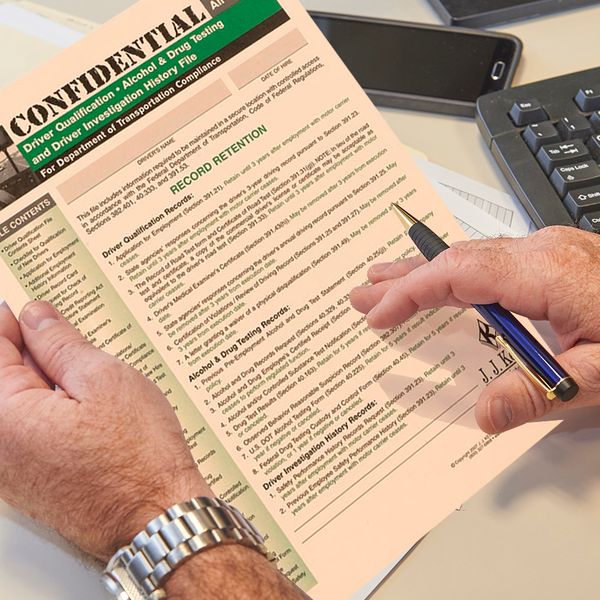When may you inquire into a driver applicant’s criminal history?
Employment laws limit when a motor carrier may approach a driver applicant about their criminal background.
Some criminal offenses remove an applicant from candidacy when the position involves:
- Entrance into secured cargo areas at U.S. seaports,
- Transportation of placarded hazardous materials,
- Participation in customs’ Free and Secure Trade (FAST) initiative; and/or
- Entrance into Canada.
Don’t let your eagerness to move forward in the hiring process result in claims of discrimination.
Ban-the-box laws
To know the restrictions placed on employers when inquiring about criminal history, you need to understand ban-the-box laws.
Over the past two decades several states — and many cities and counties — have passed ban-the-box legislation. The “box” refers to the little square on job application forms that applicants are asked to check if they have been convicted of a crime.
While many of these laws apply only to government (public) employers, a growing number apply to private employers as well.
All ban-the-box laws prohibit employers from asking applicants about criminal history on an initial job application. Some laws go further, however, specifying that employers must wait until after they have conducted an interview or made a conditional offer of employment before asking about criminal history.
The impetus behind ban-the-box or “fair chance” laws, was the idea that employers should consider a job candidate’s qualifications first — without the stigma of a criminal record.
Even in states that don’t have ban-the-box laws for private employers, asking about criminal history and using it as a basis for denying employment can violate federal antidiscrimination laws. Thus, voluntarily banning the box is a best practice.
Craft a detailed job description
The driver’s job description lays the foundation for the carrier’s expectations. Without it, an applicant could easily claim the carrier unfairly ruled them out.
If the position requires a security credential, it should be specified in the job description. You are not restricted from asking on the application whether someone currently holds:
- A Transportation Worker Identification Credential (TWIC),
- Hazmat endorsement (HME), and/or
- Free and Secure Trade (FAST) card.
If the position requires entrance into Canada, this must be clearly indicated in the job description.
Best practices to speed up the process
It takes several weeks before a driver is issued or denied a TWIC, HME, or FAST card. Rather than wait for a final disposition, a motor carrier could request a criminal background history after a contingent offer of employment to see if the driver would qualify.
If the position will take the driver into Canada, the driver cannot have a felony. Canada views a driving-under-the-influence (DUI) conviction as a felony. A DUI could be discovered through the driver’s motor vehicle record (MVR). The MVR does not have the same restrictions as a criminal background check, so it can be requested at any point in the vetting process.
This same MVR could be used to determine if the driver holds a CDL with an active HME. In theory, a driver should pass a TWIC or FAST security threat assessment when holding a HME since the investigation is the same.
Those who don’t qualify
If a driver is unable to pass a federal background investigation to obtain a credential, or has disqualifying criminal offenses limiting assigned routes, the motor carrier may rescind a job offer.
The motor carrier could offer the driver a position, if one is available, that does not require a felony-free history. The motor carrier would have to put a note in the driver’s file regarding route assignments (e.g., no Canadian shipments) or commodities (i.e., no hazmat).
Key to remember: Motor carriers should wait until a contingent offer of employment before asking about criminal history.























































